A couple of weeks ago, we hosted the MarTech West conference in San Jose. My personal thanks to all of the amazing speakers who brought such passion and insight to their martech-in-the-real-world presentations — you were awesome.
Rather than offer my “hot takes” of the event a few days later, I decided to take a little more time to rest and reflect on what I personally took away from the experience.
There were so many fascinating discussions on so many different topics. But it wasn’t just what I heard that stuck with me. It was also what I didn’t hear that struck me as remarkable. If I were to distill it into one overarching conclusion, it would be this:
The myth of martech consolidation is dead.
No, I don’t mean there will never be any further consolidation in the martech industry. Yes, the “big martech” firms of Adobe, HubSpot (disclaimer: I’m VP platform ecosystem), IBM, Marketo, Oracle, Salesforce, etc., are still growing bigger, acquiring or vanquishing other martech firms. And, yes, I expect that trend to continue into the foreseeable future. Martech is a long tail with a fat head.
But given fundamental shifts in software and marketing, it’s a really, really long tail.
Even if a cataclysmic “martech armageddon” wiped out half of the landscape in a single year, there’d still be thousands of martech companies left. And new ones would instantly spring up.
It’s surprising how unsurprising martech’s diversity has become
At MarTech’s opening keynote, Anand Thaker and I released the 2018 edition of the marketing technology landscape. It grew by another 27% this year, now charting 6,829 different martech solutions. And we’ve already heard from dozens of firms we missed. (Interesting aside: if we only missed about 5%, that would be about the same number that were on the entire 2012 landscape.)
The graphic itself was beautifully rendered this year by the team at Blue Green Brands.
But having observed the reactions to the release of the landscape in 7 previous years, there were a couple of things that were noticeably different this time.
First, the people who generally like the landscape seemed to appreciate the latest edition, but they were not surprised by it. The only thing that would have surprised them would have been massive consolidation (“Wow, there are only 100 martech companies now!”).
Second, the people for whom the landscape triggers a rant about how this whole space needs to consolidate, and will consolidate, almost certainly within the coming months, finally stopped showing up to the debate.
These were some of the headlines that appeared in major industry publications in previous years after the release of the martech landscape:
This year? Crickets.
After shouting that “the martech sky is falling!” for years, only to have the sky grow bigger and bigger, the consolidation prognosticators have collectively shrugged and moved on.
Chalk one up for the empiricists
For what it’s worth, I certainly don’t claim this outcome is evidence of any fortune-telling skills of my own. Sure, I’ve had theories about why martech might not consolidate the way others insisted it would. But I’ve acknowledged that they were just that, theories. The only constant (in marketing technology) is change.
Instead, I’d humbly suggest this is a victory for empiricism.
The marketing technology landscape has never been a prediction of the future. It’s simply an inventory of what is at a given moment in time.
While some might say that the martech landscape has finally jumped the shark — indeed, I might say that myself — I wonder if the analyst-fortune-telling industry has jumped it too.
How many big, bold predictions about marketing and martech have simply failed to materialize? Or at least not manifested when and how they were claimed to do so? (Or were so vague and generalized as to be meaningless?)
And since there are so many, coming at marketers with increasingly velocity, it’s senseless to chase them given their lack of predictive power.
Yes, 10 years from now, martech might be consolidated down to three vendors, and someone will surely chortle, “Ah, ha — I knew it would consolidate!” But that’s not exactly helping anyone in the real world who has a job to do in the intervening decade.
Forget consolidating martech, humanize it instead
It’s good that attention is shifting away from the martech landscape. Because it’s not about how many marketing technologies there are — or how many you use in your own marketing stack. What matters is how you harness these technologies to deliver compelling marketing and remarkable customer experiences.
Getting better at applying martech was the number one topic of discussion at MarTech. Three themes kept recurring:
- Marketing must cross organizational boundaries, especially sales and customer service.
- Marketing must earn trust now that data has become a liability as much as an asset.
- Marketing must swing the pendulum to infuse greater creativity and humanity in the way it wields marketing technology.
This isn’t about rejecting data or technology. Rather, it’s about synthesizing the best of left-brained analytics and right-brained imagination, balancing intelligence with emotion.
Instead of thinking about how to algorithmically “personalize” a given campaign or marketing touchpoint, step back to also ask how to make it truly personal. Frame it in the context of the entire customer journey, not just a locally-optimized conversion rate target.
Think about resonance as much as return.
With data, don’t look at GDPR as a burden, but an opportunity. How can you structure a data-driven relationship with your audience that earns their trust through transparency? How can you harness data in a way that directly empowers the customer and indirectly benefits you, instead of the other way around?
Trust is a greater brand asset than any data lake or machine learning model.
Bringing greater humanity to marketing technology isn’t just about external-facing behaviors. It’s about recognizing the changes people throughout your organization are reckoning with — having to learn new skills, new management approaches, new ways of thinking — are stressful and challenging. Don’t underinvest in training or coaching or giving people enough room to learn through experimentation.
Companies who have great cultures — those that genuinely value customers and employees — who learn how to amplify the projection of their culture through marketing technology have a competitive advantage that no martech vendor can sell you.
Martech isn’t about the size of the landscape. Or the size of your stack. It’s about the people on both ends of that machinery and how well they connect.
That was my big takeaway from MarTech last month.
P.S. If you’d like to share your experience of how your company is using marketing technology to amplify its humanity, please send in a speaker proposal for MarTech East in Boston. We’d love to hear your story.

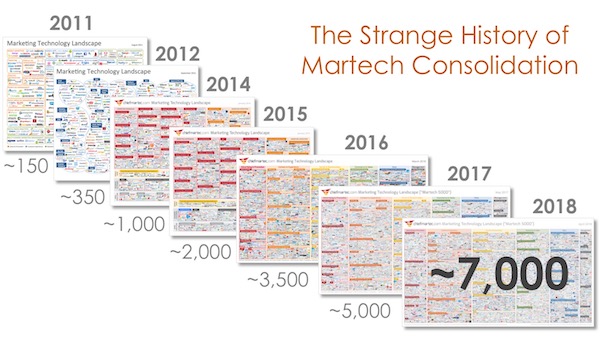
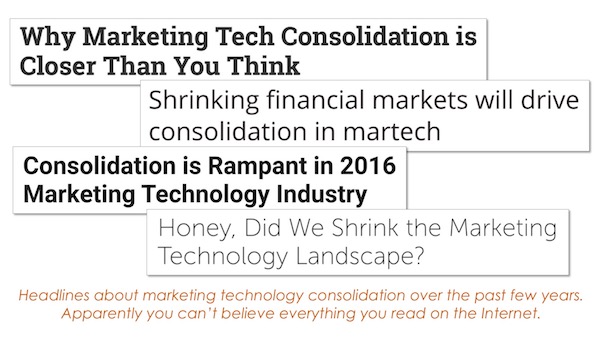
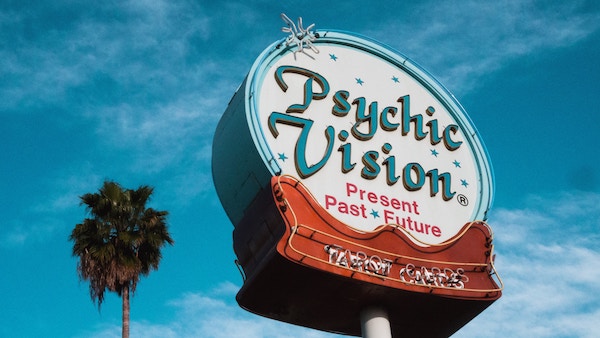


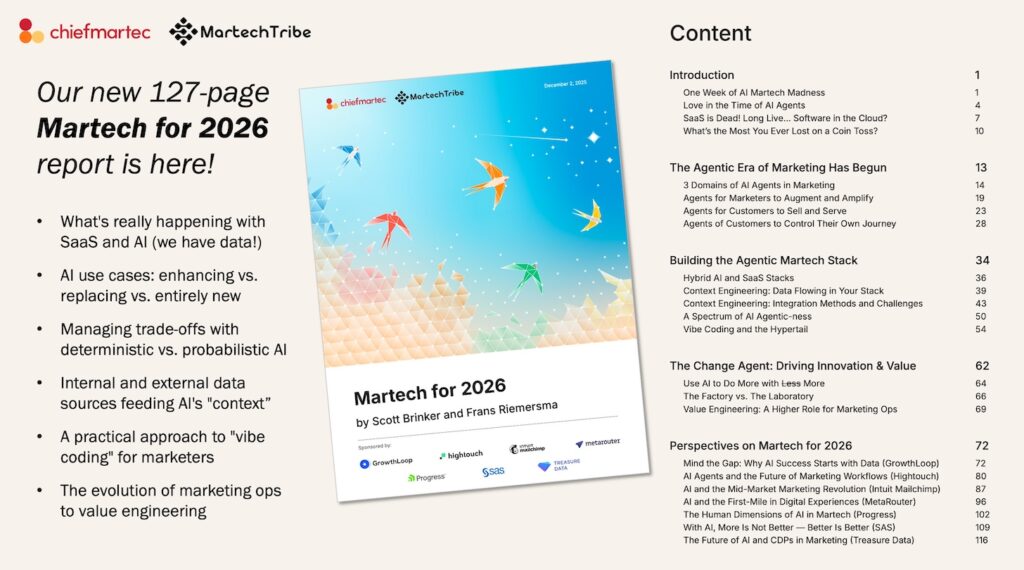

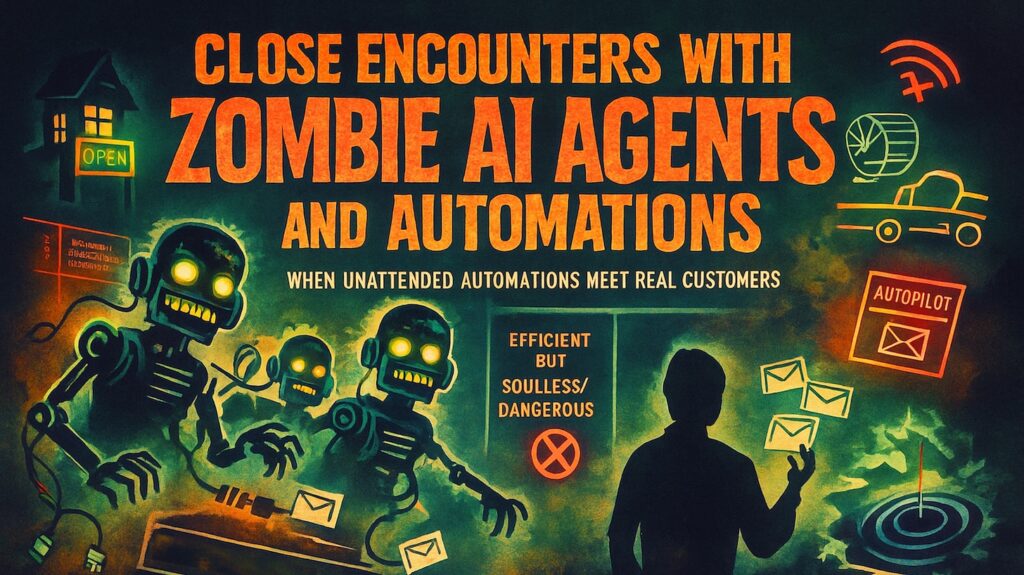
Hello Scott, I just discovered you 5 minutes ago… think you are spot on. Alex
Thanks! Glad this resonates with you.